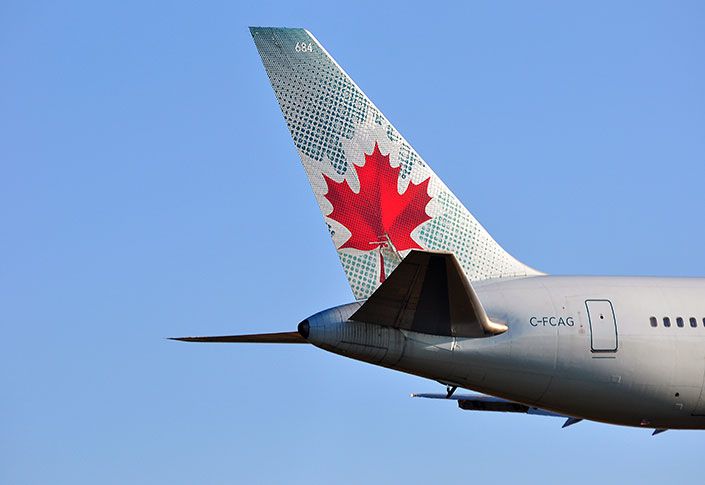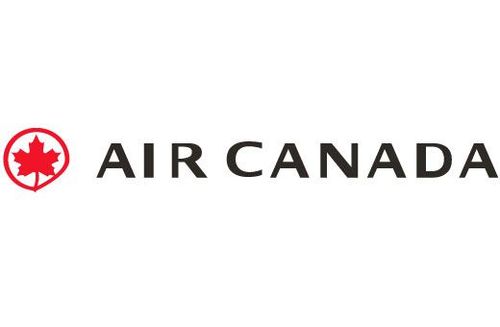Where travel agents earn, learn and save!
News / Air Canada rehires thousands of its employees with the wage subsidy program
Air Canada qualifies for the 75% wage subsidy program

Air Canada is able to offer a lifeline to thousands of its workforce, now that the federal government has confirmed that airline qualifies for the 75% wage subsidy program put in place to assist business impacted by the coronavirus pandemic and its fallout.
On March 30, Air Canada said it would have to put 16,500 members of its unionized workforce on off-duty status and put some 1,300 managers on furlough. The 16,500 jobs represent approximately 50% of Air Canada’s workforce in Canada. Other airlines in Canada and around the world have had to lay off workers and drastically reduce capacity as well.
Amid tight travel restrictions in the wake of the pandemic that have all but grounded air travel out of Canada, Air Canada has reduced its capacity for Q2 by 85-90%, with more than 175 aircraft grounded.
The federal government’s 75% wage subsidy program, known as the Canada Emergency Wage Subsidy (CEWS) program, was announced April 1.
In a statement released by Air Canada this morning, the airline said that details about CEWS are still outstanding “but are intended to generally reimburse employers suffering revenue declines exceeding 30 per cent, which is the case for Air Canada.
“As a result of the crisis, Air Canada has abruptly reduced its seat capacity by 85 to 90% and is incurring significant revenue losses. Any near-term recovery is reliant on the lifting of domestic and international travel restrictions and return of passenger traffic.”
Air Canada says that following an analysis of publicly available information on the CEWS, discussions with Department of Finance officials on certain questions of interpretation, and subject to its adoption into law substantially as announced, the airline intends to adopt the CEWS for the benefit of its 36,000 Canadian-based employee workforce, with union support.
“As Air Canada (including subsidiaries Air Canada Rouge and Air Canada Vacations) has suffered a drop in consolidated revenues of more than 30 per cent and expects to continue to do so for the Program Term, it will apply for the CEWS retroactively to March 15, 2020 and retain or return affected employees to its payroll for the Program Term.”
In addition to the temporary workforce reductions, other measures implemented by Air Canada include:
• A company-wide cost reduction and capital deferral program, now estimated to be at least $750 million for the year, increased from the previous target of $500 million.
• Drawing down operating lines of credit of approximately $1 billion, to provide additional liquidity.
• Calin Rovinescu, Air Canada’s President and Chief Executive Officer, and Michael Rousseau, Air Canada’s Deputy Chief Executive and Chief Financial Officer, have agreed to forgo 100 per cent of their salary. Senior Executives will forgo between 25 per cent to 50 per cent of their salary while members of Air Canada’s Board of Directors have agreed to a 25 per cent reduction. All other Air Canada managers will have their salaries reduced 10 per cent for the entire second quarter.
• Air Canada suspended its share repurchase program in early March 2020.
“The Canada Emergency Wage Subsidy is an extremely important program to help employees and employers during this time of crisis, and as one of Canada’s largest employers most affected by COVID-19, we want to acknowledge the leadership of the Government of Canada in introducing it,” says Rovinescu.“While our seat capacity and operations have decreased by more than 90% overnight, we are trying to keep as many of our employees as possible during the crisis and this measure will certainly help.
“Depending on wage levels, many furloughed employees will get a somewhat higher amount under CEWS than they would otherwise receive from Employment Insurance payments plus they will maintain their health insurance and other benefits and stay more connected to our company during the Program Period.”
He adds: “Once the crisis passes and passenger demand increases, we look forward to returning as many employees as possible to active status as we resume normal operations.”
Source: Travelweek
More Travel News:
TIAC Tourism Advocacy Update
Canadian Reps say Thank You!
World Tourism Organization Launches Stay Home, #TravelTomorrow Campaign
TICO has announced 90-day deferral of fees











